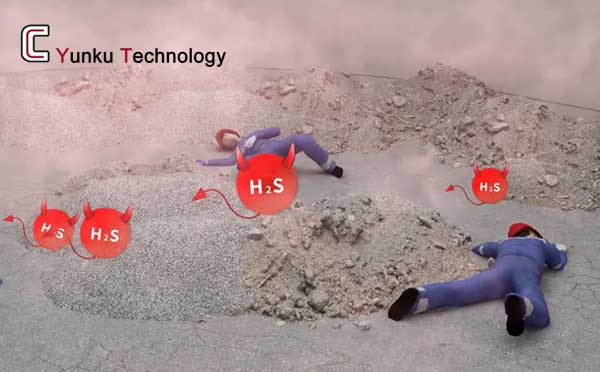- current location:
- Home
- >
- News
- >
- Accident Cases
-
Typical cases of production safety accidents in confined space operations
In 2019, the director of a company's environmental protection department assigned two shop supervisors to organize seven workers to carry out cleaning operations on a wastewater regulating pool (also known as an accident emergency pool). The accident occurred at 23:00 that night, when three operators fainted due to poisoning from inhaling hydrogen sulfide in the pool. When other people outside the pool saw this, they immediately sent out a distress signal, and then six people went down to the pool to rescue them, but the result was that five people also fainted from poisoning in the pool, and only one person climbed out of the pool on his own because of the discomfort he felt. The accident resulted in the death of seven people and the injury of two others.

The main causes of the accident were:
Insufficient approval of operation: the enterprise did not fulfill the approval procedures for the operation in confined space according to the regulations, did not carry out the necessary testing and ventilation before the operation, and the operators did not wear the necessary PPE, and entered the confined space to carry out the operation in violation of the regulations.
Blind rescue: In the rescue operation after the accident, the on-site personnel did not take safety measures and blindly went down to the pool to rescue, leading to an increase in the number of casualties.
Lack of emergency management: the enterprise lacked effective emergency drills, and the operating personnel were not trained and had insufficient capacity for safe operation and emergency response in confined space.
Previous No more
Next Sewer pipeline confined space operations to build life defences
more about [confined,space,operation,gas,detection,hazardous,gas,confined,space]:
• Confined space operation meets hydrogen sulfide poisoning, how to respond scientifically?
• How to do a good job of confined space operation protection
• Safety Protection and Emergency Rescue for Confined Space Operations
• A Cautionary Tale of Accidents in Confined Space
• Yunku Tech's Confined Space Monitoring Equipment: Intelligent Solutions to Guard Operational Safety and Efficiency

